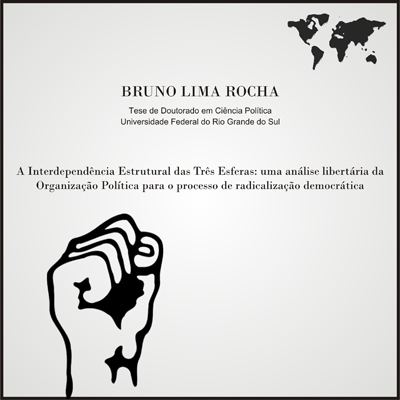

.jpg)
















|
Original Content in English Amarildo the bricklayer and the transformation of Brazil
20th August 2013, By: Bruno Lima Rocha / Translation: Jonathan Payn
Amarildo Dias de Souza is a 47-year-old bricklayer and resident of the community of Rochina, Sao Conrado, in the southern zone of Rio de Janeiro. This worker, father of six children and who has been married for twenty years, has been missing since the 14th of July. The circumstances of the disappearance show strong evidence of the involvement of the military police grouped in the Pacification Police Unit (Unidade de Polícia Pacificadora, UPP) of the area. Unfortunately, Amarildo is not an isolated case. According to Amnesty International, in the last twenty years alone more than 90 thousand people have disappeared in Brazil. The democracy currently in existence treats the base of the social pyramid in the same way as the military dictatorship treated political dissent. The “novelty” isn’t the possibility of crime on the part of a law enforcement officer but popular reaction, and the incorporation of this element by movements of a political type. Apparently, the country transforms itself from the bottom upwards. State institutions have not suffered substantive alterations and even less so the promiscuous relationship between the economic agent and the municipal, state and federal governments. The “Papódromo” (pope-dome) that ended up like the “Guaratiba sea of mud” as well as the supposed cartel of contract executing companies together with the Sao Paulo system of transport (CPTM and Metro) lend proof to this. The changes that I cite are noticeable in the capacity to react; that which was once seen as “natural” now causing indignation, politicising basic issues.
Some analysts characterise police violence as only part of the “authoritarian rubble”, a form of anti-democratic excrescence, vestige of the dictatorship. The violation of rights in the country, specifically human rights, is part of the structural injustice suffered by the majority of Brazilians. Both films by the director José Padilha, Elite Squat 1 and 2, clarified the bowels of Rio de Janeiro’s police apparatus as well as the promiscuous relationship between state crime and political opportunism. It seems that, starting with the June protests, the demands for rights have been unified.
In Rio de Janeiro, the disappearance of Amarildo materialises the banner carried in the protests against the somewhat republican relations of governor Sérgio Cabral Filho (Brazilian Democratic Movement Party, PMDB): “The police that repress in the avenue are the same that kill in the favela!” This should be the usual political and popular reaction to the fact of a humble citizen disappearing while in the custody of an agent of the state. But it isn’t. It speaks of a powerful novelty, implying a qualitative change in the citizenry.
Bruno Lima Rocha is a political scientist. (www.estrategiaeanalise.com.br / blimarocha@gmail.com)
PS: "Papódromo" is the nickname given to a huge field located in the west of Rio de Janeiro, near a new port that was going to be built for private port operations. The land could not withstand the rain, and was like a couple of lama which, in Brazilian political jargon, is like the coupist right wing of the '50s, which is to say it was like the behaviour of Vargas' nationalist government (the latter, similar to that of Perón, Vargas ended up committing suicide in August '54). This land belongs to businessman Jacob Barata, known as the King of Collectives (microbuses), and which the intendant, after a scandal for having realised works with public funds for private gains, announced that he was going to make it public. By the way, the collective transport businessman's lawyer, target of the popular rebellion in Rio, is simply the governor of Rio's wife, himself being strongly suspected of corruption and favoritism towards friendly business groups contracted by the state governor of Rio de Janeiro. |

